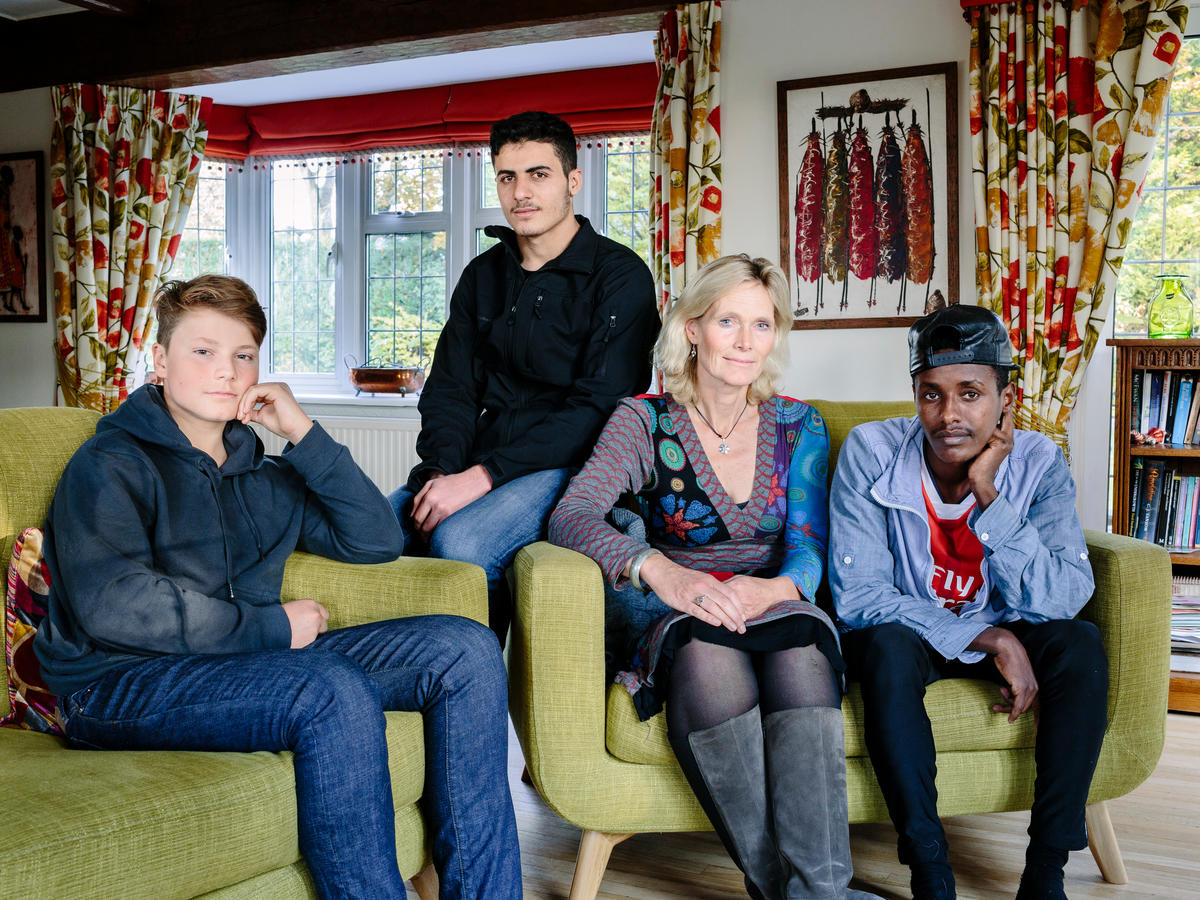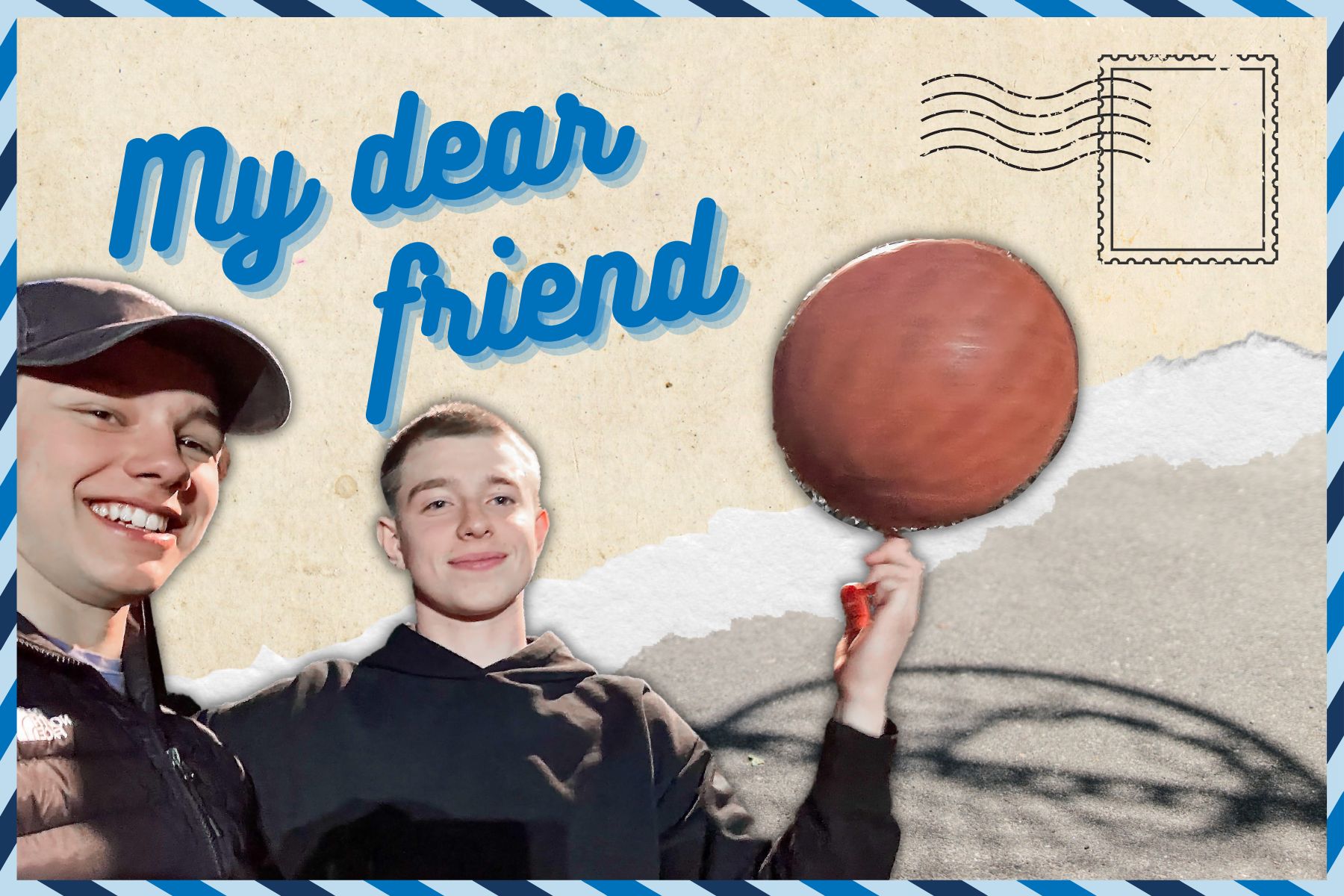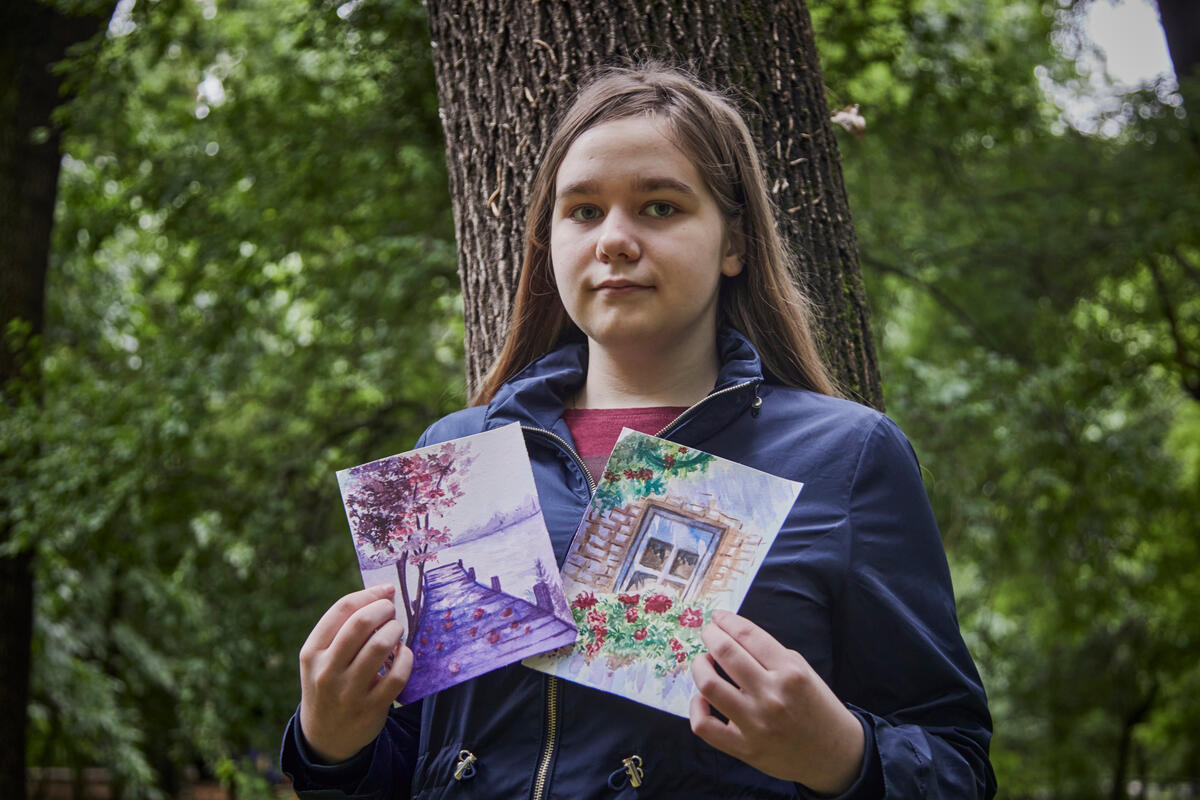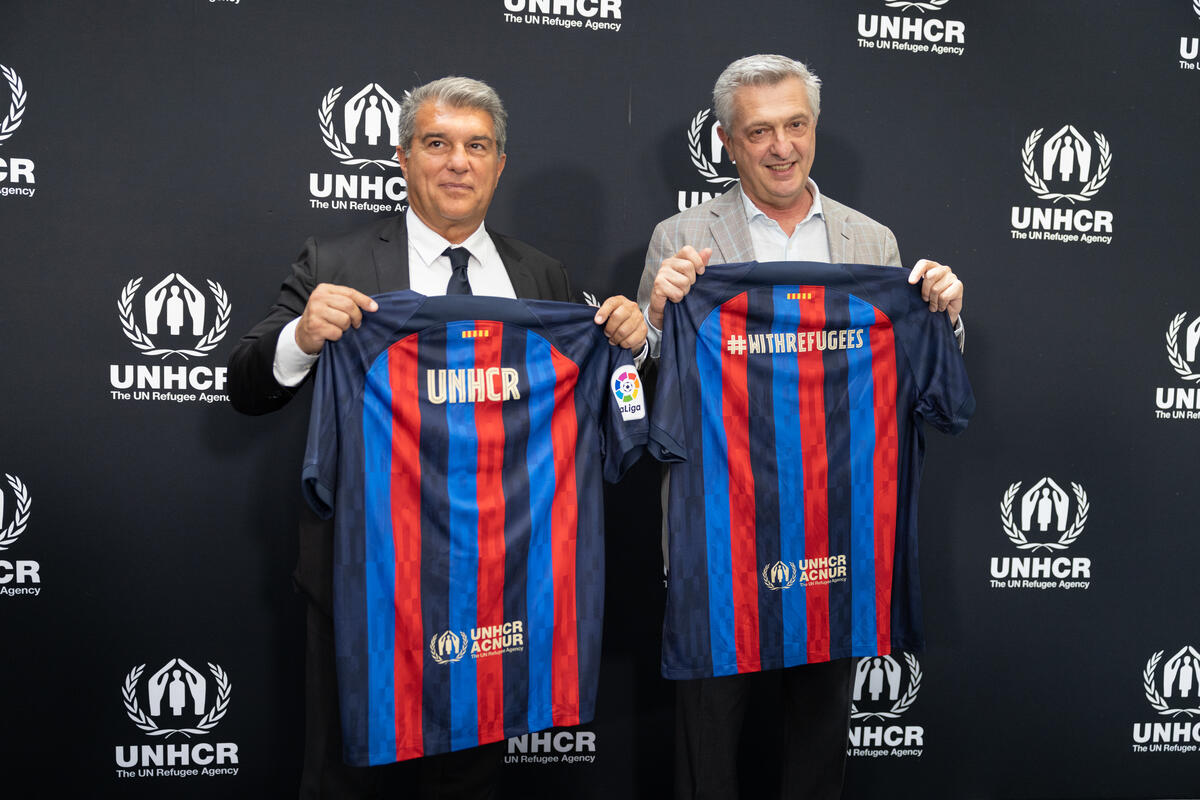UK family helps Syrian teenager forget horrors of the 'Jungle'
UK family helps Syrian teenager forget horrors of the 'Jungle'

EPSOM, England – Nineteen-year-old Syrian refugee Abdul left a lasting impression on charity volunteer Ingrid Van Loo Plowman when she met him at a hotel for asylum-seekers in the English city of Birmingham.
They stayed in contact and Ingrid, a former doctor, invited him to visit her and her 14-year-old son Ross in the market town of Epsom, just outside London. The teenagers got on so well that she invited Abdul to move in with them after he was given asylum.
“I met Abdul and he immediately made a huge impression on me because he was trying so hard to speak English and was so eager to go to university,” Ingrid said. “We stayed in touch through Facebook and I sent him books.”
Abdul fled Syria in 2014 when a bomb flattened his neighbourhood and rockets destroyed his home. His family went to Turkey and he headed for Lebanon, where he spent a year doing odd jobs until he saved enough money to go to Greece.
He found his way to the United Kingdom after spending four weeks in the makeshift camp for migrants and asylum-seekers known as the "Jungle”, outside Calais on the French coast.
Nothing prepared him for the horrific conditions in the notorious shantytown, which was demolished by the French authorities in October 2016.
"I was certain I was going to die. I never felt so much terror in my life.”
“People literally died around us in Calais. It was very scary and dangerous,” he said. “I was 100 per cent certain I was going to die. I never felt so much terror in my life.”
When he finally reached British shores on the back of a train, he was so happy he hugged the immigration officers who caught him. He was placed with 500 other young asylum-seekers at the Birmingham hotel.
Ingrid, who had given up practising medicine to focus on raising her three children, had been volunteering with refugees in Greece, and also at the Jungle in Calais.
She now runs her own charity for refugees, called CalAid Surrey, and met Abdul during a chance visit to the hotel where he was staying.
A few months later, Abdul received his residency papers and had to find his own accommodation. Ingrid, who hosts refugees through an organization called Refugees At Home, invited him to Epsom for the day in June 2016.
Her two eldest children had moved out and only Ross was still at home. The two boys swam, and played soccer and video games. They had so much fun that by the end of the day Ingrid invited Abdul to move in.
“I was overjoyed,” Abdul said. “Ingrid is a super mum. She helps me with everything. I missed my family so much but when I came here even my mum said ‘are you forgetting about me?’” he laughed. “I really hope one day I can work and repay her somehow. My life has changed 180 degrees, all thanks to her.”
“Hosting refugees is the most rewarding experience. ”
Abdul studies English full time and wants to do civil engineering at university.
“In Syria, I would have been in college by now,” he added. “Here, I am still studying English. I have started from zero again. It is not an easy life, it’s difficult. It’s hard to adapt to this new language and culture, even here with this wonderful family. It’s not easy but I won’t give up.”
Ingrid said: “He is like my son. I’m really proud of him and so impressed with his resilience and good character. He is a wonderful example for my young son.”
Ingrid is hosting two other refugees: Isak, 18, from Ethiopia, who moved in last October and speaks little English, and a 31-year-old engineer from the Middle East who did not want to be identified for security reasons.
“I always tell them one day you pay me back by having a good job and speaking good English,” Ingrid said. “Hosting refugees is the most rewarding experience. I strongly encourage people to look into it.”
Ross said meeting Abdul and other refugees had a profound impact on him.
“Initially I was a bit taken aback by the idea but now they are like brothers to me,” he said. “Before I wanted to go into business or economics but now I feel like my eyes have been opened. I want to make a difference and maybe become a human rights lawyer.”
He said it had taught him to be grateful that he had a proper home and did not live in fear.
“Now, when I see people working, and they have an accent, I think they must have very interesting stories, and I know how difficult it must be for them to get here.”
This story is part of a series entitled No Stranger Place, which was developed and photographed by Aubrey Wade in partnership with UNHCR, profiling refugees and their hosts across Europe. More than a year after the drowning of three-year-old Syrian refugee Alan Kurdi, thousands of people have come together to bridge cultural divides and language barriers, embracing compassion, hope and humanity – even as some European governments continue to build obstacles. Their generosity is an example to the world.








